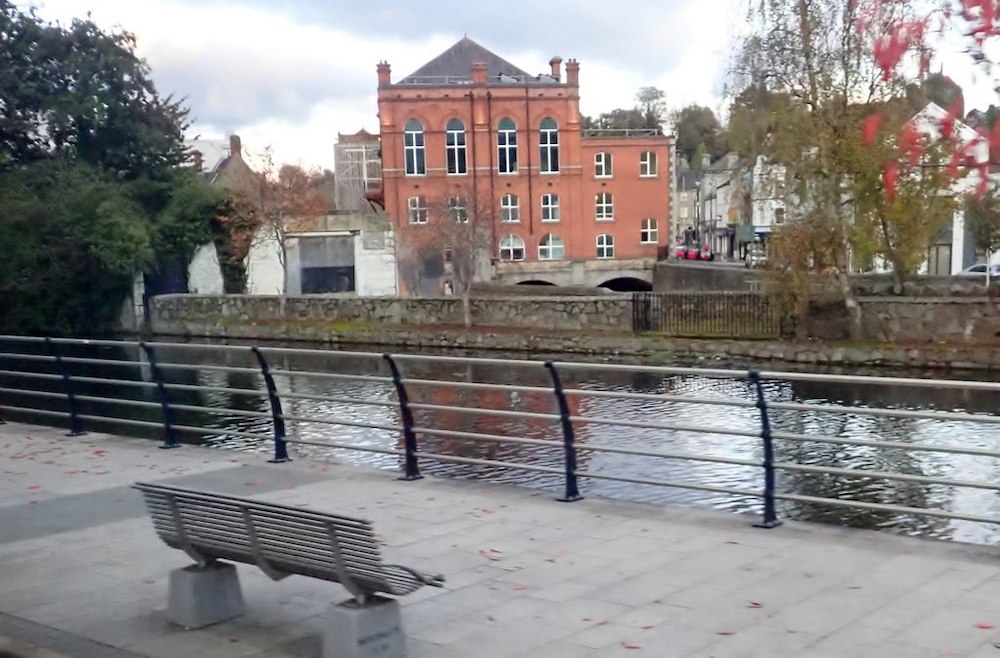
Newry, Mourne and Down District Council is considering joining the City of Sanctuary Local Authority Network to become a ‘Council of Sanctuary’. This means as a local authority we are committed to being welcoming and fair to everyone in the community.
The proposal is for Newry, Mourne and Down district as a whole, to work towards becoming a Council of Sanctuary not just Newry City. Membership of the Network involves an annual fee of £250 with no additional cost to the Council.
To provide clarity and address common questions the Council has prepared the following Questions and Answers about the proposal.
Q. Has the Council agreed that Newry will become a City of Sanctuary?
A. The Council has not agreed that Newry will become a City of Sanctuary. At a meeting of our Active and Healthy Communities Committee on 15 September, councillors agreed to join the network and work towards formal recognition as a ‘Council of Sanctuary’. This decision is now due to be considered at a meeting of full Council on 6 October.
Q. Will joining the City of Sanctuary Local Authority Network attract higher numbers of illegal immigrants?
A. The Network is about supporting refugees and asylum seekers who are placed within our district. Seeking asylum is not illegal and is separate to issues of border control and immigration policy and legislation which sits with the UK Government.
Our role is to ensure that anyone who is here, especially vulnerable people and children, are treated with dignity and supported in line with our legal and statutory duties.
Q. Does Council of Sanctuary work influence asylum decisions, placements and/or immigration status?
A. No — this remains within the remit of the Home Office. The Council’s role is to respond appropriately to the needs of those who arrive here for the benefit of the whole community.
Q. Can the Council influence who arrives or stays?
A. No — the Council responds to Home Office placement decisions and must fulfil its duties accordingly.
Q. Do Asylum Seekers choose to come to our district?
A. No — Asylum Seekers cannot choose where they live. They are housed in temporary accommodation and do not take priority over local housing lists. Asylum Seekers who receive Refugee status tend not to remain in the longer term in our district and currently the number is amongst the lowest in Northern Ireland Council areas – currently less than 40.
Q. Does the Council decide where Asylum Seekers are accommodated?
A. No — the placement of individuals in asylum accommodation is currently managed by the Home Office and its contracted providers, not by the Council. Councils do not control immigration policy or asylum decisions, and we are not responsible for allocating accommodation for asylum seekers. Our role is to ensure that all residents, regardless of their background, are treated fairly and supported so that they can integrate quickly.
Q. Are Asylum Seekers living in luxury hotels?
A. No — whilst some Asylum Seekers are accommodated in designated hotels as a short-term measure the number of hotels in Northern Ireland being used for this purpose has now reduced from 8 to 3. There are fewer than 300 Asylum Seekers in hotel accommodation at the current time and none within the Newry, Mourne and Down District Council area.
Q. Is the district not already flooded with illegal migrants?
A. Our community is made up of people from a wide range of backgrounds. Some are students or workers on valid visas, supporting local businesses and healthcare; others are long-term residents from different countries who often enrich our community through work, family life and civic engagement; and a small number are seeking safety and protection. In fact, the number of asylum seekers in our district is among the lowest across Northern Ireland’s council areas.
Q. Is ‘Council of Sanctuary’ the same as Sanctuary Cities in the USA?
A. No — a ‘Sanctuary City’ is a USA city, county, or state which limits cooperation with federal immigration enforcement agencies to protect undocumented immigrants from deportation and ensure access to local services like schools and healthcare. These policies are controversial, with proponents arguing they foster community trust and protect vulnerable populations, while opponents contend, they undermine federal law and encourage illegal immigration. The Council in managing social inclusion and good relations work co-operate with all statutory, community/voluntary and other partners in order to do the best for all our community within current Government legislation and policy.
Q. Does the Council receive payment for each asylum seeker who comes to the District?
A. No — The Council does not receive money to accept refugees/asylum seekers, nor does it directly fund them.
Last year Council received funding from The Executive Office for Refugee Integration Funding. This is to cover Council working with local groups to support cultural integration activities, and needs-based projects, etc. This is not annual funding, and no funding decision has been confirmed for this current financial.
Q. Does becoming a welcoming district mean that the Council is encouraging or attracting migration?
A. No — being a welcoming district does not equate to encouraging or attracting migration. Asylum seekers cannot access normal benefits. They receive only minimal support and usually cannot work.
Supporting people seeking sanctuary does not mean favouring one group over another. It is about building efficient, inclusive systems that work for all residents.
Q. Are Asylum Seekers more likely to commit crimes?
A. No — there is no evidence that asylum seekers are more likely to commit crimes than the general population. People seeking sanctuary are often women and children fleeing violence, seeking the same protection and safety local families hope for. Data shows that in relation to Violence against Women and Girls the vast majority of perpetrators are known to the victim.
Q. Has the Council failed to comply with its statutory equality obligations under section 75 of the Northern Ireland Act 1988?
A. Council statutory responsibilities under section 75 of the Northern Ireland Act 1988. A screening exercise has been completed and will be reported in the Quarterly Policy Screening Report for the period July-September 2025 and uploaded to Council’s website. The outcome of equality screening is that it is not recommended the proposal be subject to an Equality Impact Assessment on the basis that no specific adverse impacts have been identified at the current time.
The City of Sanctuary initiative would be designated as being a positive action measure as it closely aligns with the Council’s statutory responsibilities under Section 75 of the Northern Ireland Act 1998, particularly in promoting equality of opportunity and fostering good relations.
Q. Is the Council being ‘secretive’ about its intentions in relation to the Council of Sanctuary initiative?
A. No — all debates in relation to this have been held in open session and Committee Meetings have been open to the public to attend.
Q. What is going to change if the Council becomes a Council of Sanctuary?
A. We would join the City of Sanctuary Local Authority Network and carry on the work we are already doing in social inclusion and good relations, while being part of a wider Network that shares best practice and learning.





